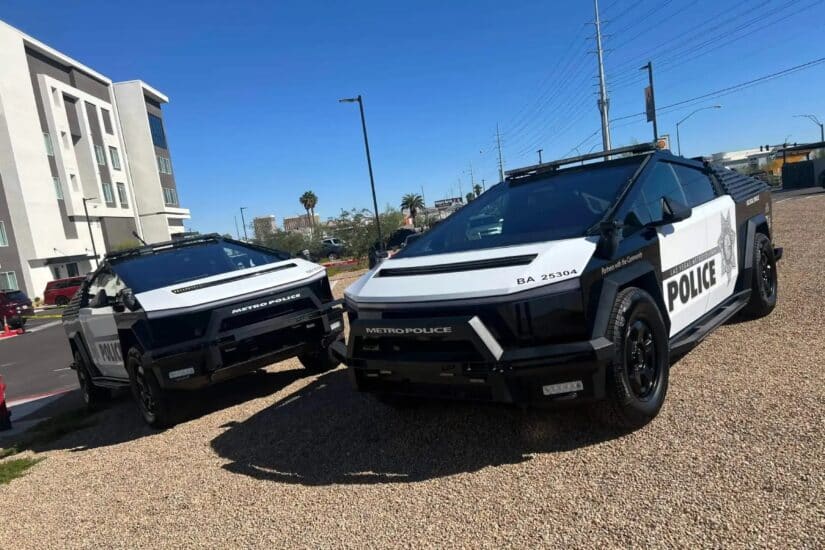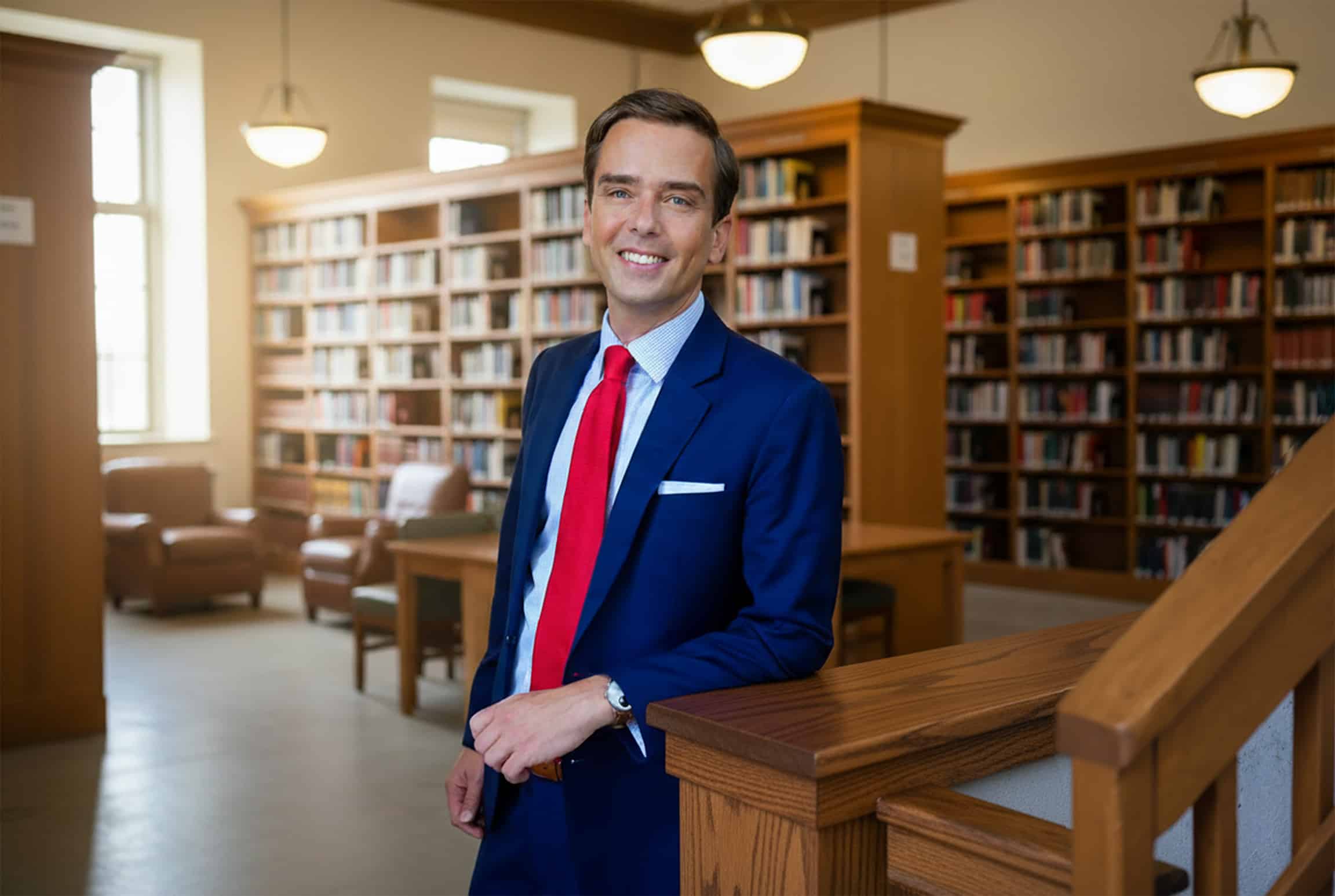
In a dramatic moment beneath the desert sun, Clark County Sheriff Kevin McMahill stood before ten gleaming Tesla Cybertrucks, their black-and-white bodies marked with the emblem of the Las Vegas Metropolitan Police Department. Drones buzzed overhead, a helicopter circled, and McMahill declared, “Welcome to the future of policing.” Beginning this November, these Cybertrucks will begin patrols across Las Vegas, forming the nation’s largest electric-vehicle law-enforcement fleet. Donated by tech billionaire Ben Horowitz, co-founder of Silicon Valley’s powerhouse venture-capital firm Andreessen Horowitz (a16z), the fleet’s launch has ignited an intense debate over innovation, public safety, and the expanding relationship between private wealth and public policing a development increasingly examined by public safety lawyers and policy experts concerned with how technology reshapes modern policing.
A Gift Worth Millions
Valued at an estimated $2.7 million, the Cybertruck donation is the latest in a series of contributions by Ben and Felicia Horowitz to the Las Vegas police. The couple previously funded Project Blue Sky, a multimillion-dollar drone initiative that gave the department advanced aerial surveillance capabilities.
These new Tesla Cybertrucks each costing between $80,000 and $115,000 are equipped with specialized hardware: ballistic shielding, tactical ladders, upgraded batteries, and shotguns mounted within the cabin. About 400 officers have completed training to operate them, a move McMahill says will “redefine safety and sustainability in policing.”
Supporters see it as a step toward modernization. Critics call it something else entirely.
The Fine Line Between Innovation and Influence
Government-oversight experts and civil-rights advocates warn that private donations, however well-intentioned, can blur ethical boundaries. When private investors supply high-profile equipment to police forces, the gesture can carry brand or political implications.
For example, Tesla’s founder, Elon Musk, has faced repeated controversies involving his business dealings and political commentary. Critics argue that the Cybertruck donation indirectly boosts Tesla’s public image and links local policing with Silicon Valley’s corporate power, an uneasy pairing in an era when transparency and impartiality are vital for public trust.
Laura Martin, executive director of the Progressive Leadership Alliance of Nevada Action Fund, described the vehicles as “intimidating rather than protective.” She believes they symbolize “police militarization more than community service.”
Sheriff McMahill’s Vision: Safety Through Strength

Sheriff McMahill disagrees. “These trucks are bulletproof. They’re built to withstand barricades and respond faster to emergencies,” he explained. “They represent sustainability, efficiency, and safety for every officer on patrol.”
He argues that the Cybertrucks’ durability could save lives in active-shooter or barricade situations, where standard vehicles offer limited protection. Their electric design also reduces emissions and long-term maintenance costs.
Still, as one veteran officer quietly observed, “Even a bulletproof truck can’t shield us from public skepticism.”
The Recall Shadow
The National Highway Traffic Safety Administration (NHTSA) recalled nearly 46,000 Cybertrucks earlier this year due to exterior panel defects that posed risks to other drivers. A second recall in October affected more than 63,000 units because of excessively bright headlights.
Officer Robert Wicks, spokesperson for the department, assured reporters that all recall issues were resolved before the Las Vegas fleet arrived. “Every truck was inspected twice,” he said. “None of the defects apply to our modified units.”
Even so, the recalls have fueled public doubt. Federal regulators are also investigating Tesla’s self-driving software after numerous incidents nationwide. Las Vegas officials emphasize that none of the police Cybertrucks include self-driving capabilities, keeping manual control firmly in officers’ hands.
Concerns Over Data and Surveillance
Civil-rights groups including the American Civil Liberties Union of Nevada caution that introducing corporate technology into police work could expose sensitive data.
Athar Haseebullah, ACLU of Nevada’s executive director, noted that Tesla’s vehicles already collect extensive telemetry and driver-behavior data. “When these trucks become tools of law enforcement, who controls that information?” he asked. “Could Tesla access police footage or movement patterns? That’s where transparency becomes non-negotiable.”
This concern grew after reports earlier this year that Tesla provided federal investigators with internal data following a Cybertruck explosion outside of Trump’s Las Vegas tower, including real-time driver analytics.
The Political Undercurrent
The Cybertruck rollout arrives amid a politically charged backdrop. Earlier in the year, former President Donald Trump famously test-drove a Tesla on the White House driveway, vowing his support for the struggling automaker. Some view the Las Vegas donation as another example of blurred boundaries between politics, private industry, and public service.
Ben Horowitz himself has contributed to both Republican and Democratic campaigns. His firm, Andreessen Horowitz, invested in Musk’s takeover of Twitter (now X), and has long advocated for “disruption” in traditional industries including government and law enforcement.
As one local journalist wrote, “When the lines between philanthropy and influence fade, the public deserves to know who benefits most.”
Technology Meets Tradition
At their core, the Cybertrucks offer legitimate operational benefits. Their shorter turning radius, enhanced torque, and larger battery capacity make them ideal for urban policing in traffic-dense environments like the Las Vegas Strip.
From a logistics perspective, using public charging stations helps the department align with Nevada’s renewable-energy goals. Yet the sight of futuristic, angular vehicles rolling through downtown steel gray against neon creates an image some find unsettling.
A long-time Las Vegas resident compared it to “seeing science fiction become real life but without asking whether the script was ever ours to write.”
What Experts Say About Private Donations
Ed Obayashi, a California-based law-enforcement policy analyst and prosecutor, clarified that private donations to police departments are not illegal unless local law restricts them. However, he emphasized that “perception matters.”
“There’s no specific operational advantage to using Cybertrucks over existing vehicles,” Obayashi said. “But it saves the taxpayers money. The question is whether that saving is worth the optics of private sponsorship.”
For many, the issue is less about legality and more about accountability. Who ensures that donations align with public interest, not private gain?
Community Perspective
At a recent community meeting, residents voiced mixed feelings. Some applauded the modernization effort, noting that Las Vegas officers face rising violent-crime rates and deserve the safest equipment available. Others worried about the symbolism of the trucks’ armored design and their potential surveillance features.
One parent attending the meeting remarked, “When my kids see a police car, I want them to feel safe not small.”
Local advocacy groups are urging Clark County commissioners to establish stricter oversight of private donations to law enforcement agencies.
A Year of Recalls and Reforms for Tesla
For Tesla, 2025 has been a turbulent year. Following back-to-back recalls and federal probes into Autopilot, the company has struggled with image management. Analysts argue that public partnerships, like the Las Vegas fleet, can serve as subtle branding opportunities for Tesla — showcasing its vehicles as tools of government reliability.
But critics counter that public safety agencies should not be used to “re-market” private products.
As one observer put it, “We don’t let corporations sponsor courtrooms or judges’ robes. Why should police fleets be any different?”
Ethical Reflections: When Technology Shapes Justice
Beyond the headlines lies a deeper question: What happens when the tools of justice are shaped by private enterprise?
The Las Vegas Metropolitan Police Department’s Cybertruck fleet embodies the promise and peril of modernization. On one hand, it represents innovation and a cleaner, safer, data-driven approach to policing. On the other, it forces society to confront how technology can shift power dynamics between corporations, government, and citizens.
The excitement of progress must coexist with humility and oversight. Because behind every piece of machinery whether a patrol car or a Cybertruck there remains a human officer, a public servant, and a community watching closely.
A Look Ahead
The Cybertruck fleet will begin active patrols this November, focusing on high-risk responses such as barricades, active-shooter situations, and hostage calls.
Sheriff McMahill insists the vehicles “represent innovation, sustainability, and responsibility.” Yet for many residents, those words will only hold weight when translated into action when technology serves people, not the other way around.
Nevada’s policing future is unfolding in real time, one electric mile at a time.
About Ted Law Firm
At Ted Law Firm,We serve families across Aiken, Anderson, Charleston, Columbia, Greenville, Myrtle Beach, North Augusta and Orangeburg. monitors major developments affecting public safety, consumer protection, and government accountability across the United States. From traffic collisions to corporate liability and technology oversight, the firm provides informed legal perspectives rooted in fairness, integrity, and civic trust.Contact us today for a free consultation.
